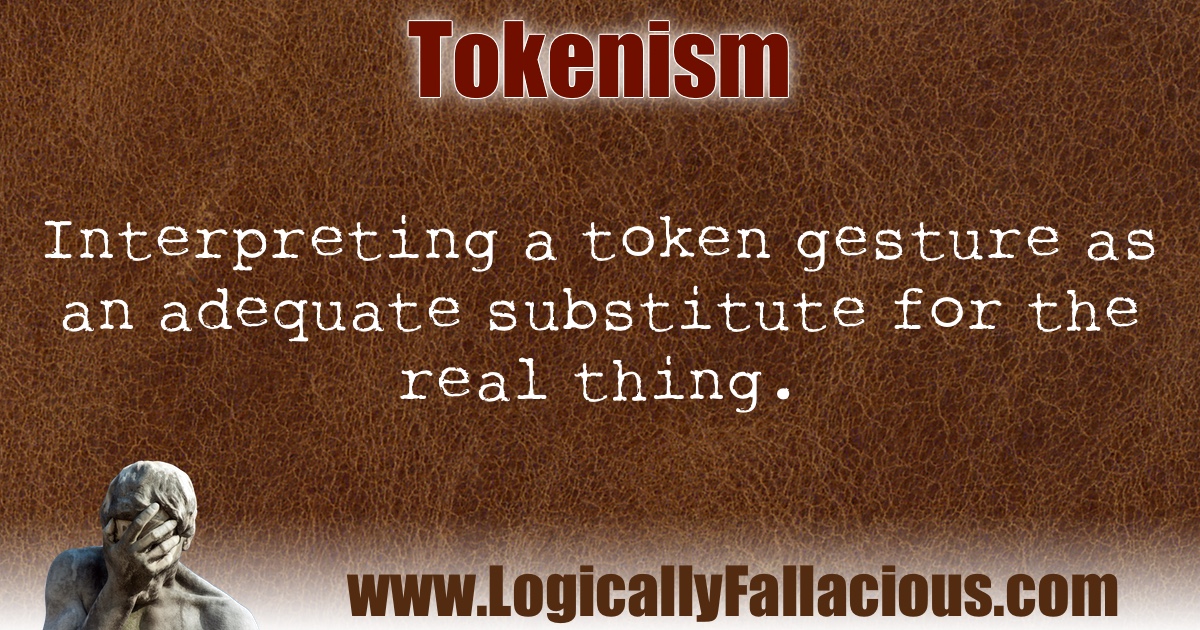Description: Interpreting a token gesture as an adequate substitute for the real thing.
Logical Form:
Problem X exists.
Solution Y is offered.
Solution Y is inadequate to solve problem X but accepted as adequate.
Example #1:
The presidential nominee has been accused of being racist. But he recently stated that he really liked the movie, “Roots,” so I guess he isn’t racist.
Explanation: Liking one movie that exposes racism and encourages equality, is far from the same as not being a racist.
Example #2:
Mr. McBoss' company consists of 50 executives who are all men, and 50 secretaries who are all women. To show he is all about equal opportunity, he has agreed to hire a woman executive.
Explanation: This "token" gesture does not come close to making up for the disproportionate hiring practices of Mr. McBoss' company.
Example #3: In the summer of 2020 when racial tensions were high, many media sources did their part to solve racism by capitalizing the “B” when referring to black people while keeping the “w” lowercase when referring to white people. Some sources that picked up this story saw this as a token gesture to help shield them from public claims of racism.
Exception: If a token gesture is seen as a token, and not as an adequate substitute, it is not a fallacy.
I know I have a weight problem, and I am trying. So far, I have replaced my usual breakfast of doughnuts with a single grapefruit.
Fun Fact: Some attempts to solve racism are Stupid with a capital “S.”
